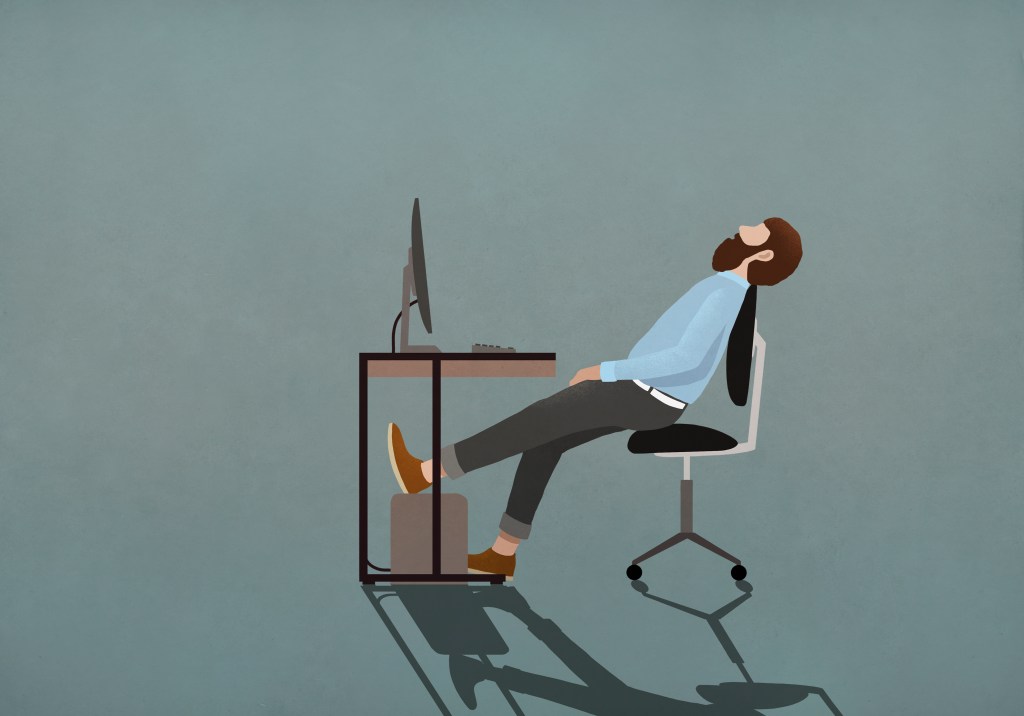While technology can be a productivity booster, too much tech in a person’s working day can negatively impact their mental health and well-being.

A report for the European Parliament reviewed 22 prior studies on the impacts of digital technologies in the workplace and highlighted the impact of what’s called ‘technostress’. The report found that working with technology increases the probability of burnout, can negatively impact a person’s quality of life and lead to techno-addiction.
The adverse effects don’t depend on the type of technology a person uses but rather the way the technology is used.
Research conducted by Gary Small and colleagues from the David Geffen School of Medicine at the University of California also found that frequent digital technology use significantly impacts how the brain functions and people behave.
The negative impacts include heightened attention-deficit symptoms, impaired emotional and social intelligence and brain development, technology addiction, social isolation, and disrupted sleep.
But it’s not all bad news. The researchers also concluded that specific types of computer programs and video games might improve memory, multitasking skills, fluid intelligence, and other cognitive abilities.
Know the warning signs
Employers and employees need to be alert to the warning signs of tech overload. This step is crucial because chronic work-related stress is associated with health issues such as depression and coronary heart disease and directly impacts workplace productivity, job satisfaction and retention, and personal and professional relationships.
Notice when the pressure at work is becoming unhealthy. For employers, look for drops in productivity, unexplained absences and changes in your team member’s behaviour. For individuals, notice if you feel like you can never switch your computer or mobile devices off and if you are constantly refreshing your email screen.
Find the off switch
Completely switching off from work takes discipline. If you consistently check emails and respond to work requests, you deny yourself the opportunity to have a real break. You are also creating a pattern of behaviour for yourself and those around you. Your boss or team will start to expect a response.
For leaders, discuss and agree on boundaries with your team members. Agree on what’s reasonable. Talk about how you will handle calls and emails received outside set work hours. You want to ensure enough time for your team to switch off from work.
It’s easy to be ‘on’ all the time, so use technology to help you switch ‘off’. For example, schedule your phone to switch to ‘do not disturb’ and turn off social media push notifications and email alerts at set times during the day.
Build healthy tech habits
Sleep is a critical ingredient for well-being, and technology impacts your sleep. Research shows that using technology which emits a blue light stimulates the brain, making it harder to fall asleep. It can also negatively impact your circadian rhythm, reduce the amount of REM sleep you receive and therefore impact your alertness when you wake up in the morning.
Regulate when you stop looking at your phone or digital device in the evening, and then don’t let your phone be the first thing you turn to in the morning.
Step away
Participating in online meetings all day can be exhausting. Consider that not all conversations need to be face-to-face; some are equally as effective when you pick up the phone and chat.
During the day, get away from the computer and get moving. Exercise releases endorphins, which help to motivate and elevate one’s mood. You can even put headphones on and hold your meeting while walking.
The key is to get away from your desk because by shifting your environment, you alter your state, helping to reset your mindset and get a fresh perspective.
Seek real connection
Humans are hard-wired for connection, and too much technology fuels disconnection. Spending your day at work checking out social media and ‘doomscrolling’ will do nothing to aid your productivity, mood or relationships.
Set aside regular times for social engagements and opportunities where you can share, laugh and connect away from your digital devices.
Michelle Gibbings is a workplace expert and an award-winning author of three books, including ‘Bad Boss: What to do if you work for one, manage one or are one’. Find out more at www.michellegibbings.com.